The Dance of the Demons


The debris and the dead bodies from the carnage and mayhem unleashed on Mumbai for 60 hours from the night of 26th November 2008 may have been cleared. But the damage to a nation’s pride left behind by the Dance of the Demons cannot be undone.
Just a handful of men, ten by official count, armed to the teeth set sail from a neighboring country, landed on the shores of the country in Mumbai in a rubber dinghy, slipped in to the city with incredible ease and began, with equal ease, their spree of death and destruction as the entire country watched incredulously and shell-shocked in utter disbelief. They let loose their bloody carnage at five carefully chosen locations. These were: Cafe Leopold a restaurant existing since over a hundred years and popular with tourists, Hotels Taj Mahal and Oberoi Trident, CST, one of the main rail terminii within the city and a private building, Nariman House. They also planted at least eight bombs, two of them in taxis which exploded. They were obviously helped in their task also by elements within the country in different ways, and particularly in selecting the specific target locations, one of which, Nariman House housing Jews was so obscure that even most residents of the area would not have been aware of its existence and significance. The entire world watched how easily a country, whose leaders would make its people believe that the country would be a Super Power, could be shamed and humiliated.
Reams have been written and hundreds of hours of telecast have shown the details of the operation that followed where the city and the nation were held to ransom for a full 60 hours. In the end, the valiant efforts of the brave-heart security forces including the police and the National Security Guards, the naval commandos and para military forces as well as the fire brigade succeeded, as they ought to have, to bring an end to the sickening event. The ten men’s bloody carnage left 183 dead and 310 wounded, amongst them many foreigners. Twenty men from the police and the National Security Guards laid their lives. Of the ten terrorists, one man was shot dead and one captured by the police away from the main scene as those two tried to escape to nowhere. The remaining eight were killed by the National Security Guards.
Just a handful of men, ten by official count, armed to the teeth set sail from a neighboring country, landed on the shores of the country in Mumbai in a rubber dinghy, slipped in to the city with incredible ease and began, with equal ease, their spree of death and destruction as the entire country watched incredulously and shell-shocked in utter disbelief. They let loose their bloody carnage at five carefully chosen locations. These were: Cafe Leopold a restaurant existing since over a hundred years and popular with tourists, Hotels Taj Mahal and Oberoi Trident, CST, one of the main rail terminii within the city and a private building, Nariman House. They also planted at least eight bombs, two of them in taxis which exploded. They were obviously helped in their task also by elements within the country in different ways, and particularly in selecting the specific target locations, one of which, Nariman House housing Jews was so obscure that even most residents of the area would not have been aware of its existence and significance. The entire world watched how easily a country, whose leaders would make its people believe that the country would be a Super Power, could be shamed and humiliated.
Reams have been written and hundreds of hours of telecast have shown the details of the operation that followed where the city and the nation were held to ransom for a full 60 hours. In the end, the valiant efforts of the brave-heart security forces including the police and the National Security Guards, the naval commandos and para military forces as well as the fire brigade succeeded, as they ought to have, to bring an end to the sickening event. The ten men’s bloody carnage left 183 dead and 310 wounded, amongst them many foreigners. Twenty men from the police and the National Security Guards laid their lives. Of the ten terrorists, one man was shot dead and one captured by the police away from the main scene as those two tried to escape to nowhere. The remaining eight were killed by the National Security Guards.
Not in their wildest fears could the citizens of the country imagine that such an attack on the soil of the country could take place not by any regular armed forces but by less than a dozen men - no more than mere foot soldiers. The nation feels utterly humiliated and its pride is badly bruised and scarred indelibly. The bitter resentment, anger and frustration of the people at their own vulnerability and the intolerable callousness of the Government have been finding expression beginning with a spontaneous rally of a hundred thousand citizens protesting in Mumbai.
And who should be held accountable for the inexcusable failure to secure the lives and safety of the helpless and vulnerable people? Looking to events of the recent past, there is absolutely no doubt that the prime and paramount responsibility for the situation that emboldened the terrorists and made their task to carry out the attack not too difficult, lies on the political establishment at the Centre and the State.
Although, in principle, the entire Central Government should bear the responsibility it is clear to all that the two political parties that should bear the brunt are Congress and NCP. As far as the Congress party is concerned, it is Sonia Gandhi who must own full moral responsibility for the mess. It is she who not only hand-picked Shivraj Patil at the Centre and Vilasrao Patil in Maharashtra State, but also continued with these recognized incompetent men, lending them her full support till the end when their continuance became totally untenable. The second more important reason is that the entire approach of the Congress Party and policy of the Government towards terror and dealing with the problem must flow from the ‘guidance and advice’ received from the Congress President. This has already been brought out clearly in earlier articles (here and here and here). The Home Ministry, in particular, is the domain and responsibility of the Congress Party in the coalition scheme. It is unthinkable that the Prime Minister and the Home Minister would pursue any policy line that was not dictated or blessed by their Party Chief. The soft or almost non-existent, unstated policy on terrorism followed by the Government could not have been adopted unless authored or approved by her. Likewise, Sharad Pawar of the NCP must also bear the moral responsibility for the consequences due to absence of a firm policy or action plan on terror in Maharashtra where the Home Ministry which was found totally wanting is in the NCP domain and was headed by R.R. Patil all along. Besides, Pawar also being an important Union Minister could at least have tried to influence the Centre’s policy line, being a partner in Maharashtra and having a background of the terror related events in the State.
The Puppeteer
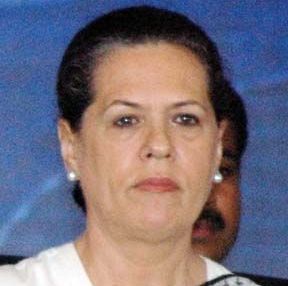 chi è responsabile?
chi è responsabile?
The Shield - Nursing the Headaches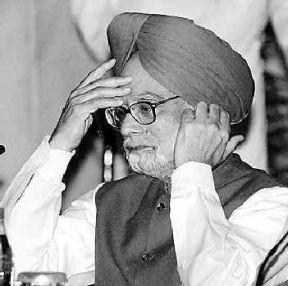

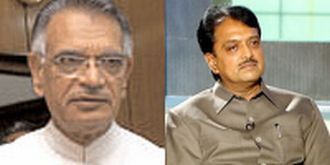 The Puppets
The Puppets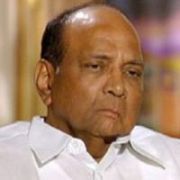
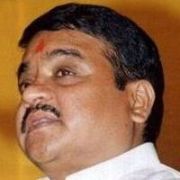 The Auxiliary Support
The Auxiliary SupportIn spite of this position, did these two worthies even whisper the possibility of accepting their responsibility? Did they show even a twinge of conscience? They did not. Instead, they cleverly pushed the blame on their orderlies. As far as the Congress is concerned, the Prime Minister was left defending the indefensible. Pawar went further and in his best tradition distanced himself and tried to shift the entire blame on the Congress by innuendo and oblique criticism.
The attack that in a way struck at the very root of the sovereignty of the country should have led these "leaders" and the Ministers concerned to hang their heads in shame. Yet, days after the event, these utterly shameless, callous and insensate persons were unrepentant, refusing to own responsibility and to be held accountable. The earlier articles on the subject bear careful reading as it would show how uncannily the history repeats every time there is a terrorist attack with the Government responses being entirely predictable, including blaming others for its own failure to deal with the problem on our own soil. (see here and here)
The impenitent political leadership once more started making empty noises, the intelligence agencies began blaming each other and the harum-scarum bureaucracy just remained impassive and unmoved. If anything, men like the Home Secretary Madhukar Gupta might have been elated that there was one more experience to learn from – going by his immature and imbecile comments last time when Delhi was attacked by terror. (see here)
When and only when the public pressure became too much, were the pawns in the game - the Home Minister of India, the Home Minister of Maharashtra and the Chief Minister of Maharashtra reluctantly pushed out. A day before he was forced to quit, Vilasrao, the brash Maharashtra CM, in a show of crass sauciness even took a movie producer with him on an “inspection tour” of one of the locations where the terrorists had created the maximum havoc. Incidentally, it is worthwhile referring to the following almost prophetic picture which was published in an earlier article in July 2008 (here). The suggestion intended in the picture was that the country had become a tourism destination for Terrorists. Vilasrao’s inspection tour, which has since been described as “Terror Tourism” has provided a strange twist and a somewhat different meaning to the picture.
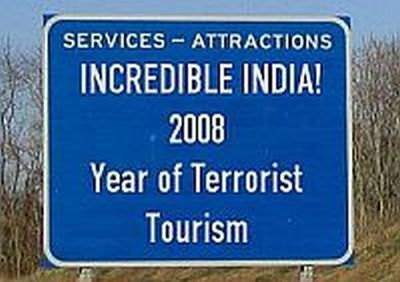
Apart from a deliberately hazy policy, lack of comprehension of the gravity of the threat facing the country on the part of the Government and sheer incompetence of the Home Minister who did absolutely nothing visible while saying ‘It is not as if nothing has been done’ an environment existed (and may still exist) which could encourage the perpetrators of the attack. The shillyshallying bureaucracy at the Centre and the State obviously did not contribute anything towards improving the situation.
The intelligence and security failure
As details unravel, it is becoming clear that the success of the attack was due in no small measure to the failure of the intelligence and security agencies and the bureaucrats to do the jobs they are supposed to do. The absence of policy, effective direction and control from their political masters coupled with bureaucratic negligence obviously resulted in this state of affairs.
Amidst the usual cries about absence of actionable intelligence, information has filtered out to suggest that a considerable amount of intelligence, some of it even from foreign agencies, was made available to the agencies much before the attack took place. Even if the intelligence may not be “actionable” in the eyes of these agencies, certainly they would be expected to develop the same further and anticipate what might happen. The Terrorist threat is dynamic and demands preparedness and building threat scenarios all the time based on bits and pieces of intelligence available from any reliable source. It is certainly not just a question of waiting for actionable intelligence to fall into the laps. The task of the security agencies and the Ministries concerned is to visualize and build threat scenarios from valid intelligence and data and take appropriate steps. Intelligence programmes typically have several components viz. core systems, tasking, collection, processing and dissemination systems. It is how efficiently the entire architecture is put in place and executed that determines how effective the agencies are. There is no use insisting on intelligence that is complete and specific in every respect.
Actions that followed
Once the stupefied and indolent Government realized the full gravity of the situation and the implications – real as well as symbolic – on the credibility of the entire country and of the Government caught napping, it finally came out of its stupor and tried to galvanize itself into some action.
Its main actions are now directed towards putting pressure on Pakistan to stop its territory being used for terrorist activities directed towards India. This is an appropriate action under the circumstances. Even the USA sent Secretary of State Condolezza Rice to show solidarity with India. It, is however, also possible that the USA was quite alarmed at India’s vulnerability to such attacks, which was badly exposed. Being unsure of the Government’s response and handling, USA probably also wanted to discourage the Government of the day from taking unanticipated hasty actions that might disturb the situation in the region.
While the Government has taken a stern position against Pakistan, quite rightly so, it has also asked Pakistan once again to hand over certain persons wanted by India and living in Pakistan, including the notorious Dawood Ibrahim. Knowing the consistent belligerence of Pakistan with India on such issues, it is unlikely that this demand can yield anything. If the Government itself does not have the will or the ability to do anything to put out the assets and organization of people like Dawood within our own borders, it can hardly be expected of a not too friendly neighbor to deliver on a platter what India has demanded. Any actions that might follow either from our own Government or from other friendly countries to pressurize Pakistan into dismantling the terror apparatus on its soil and the like, may help in the long term but will not help us in the near future. And other than diplomatic actions of the kind that are already being pursued, there are no other hard options that may be exercised as the consequences could be quite unpredictable, particularly as the situation in Pakistan is far from stable with that country practically struggling to maintain its identity.
The main option before the Government is now to focus its attention on improving the situation within, from the ground up. The Ministers at the top have been sent packing. The Home Ministry still has a candidate who could be removed as a Minister of State whose role and usefulness appears to be limited to making controversial statements and criticizing the Opposition. Amongst the bureaucrats, by a stroke of good timing, some of them have already left the scene after the event. It may be time to take decisions on the National Security Advisor, the Home Secretary and the ever-so-controversial RAW chief. At the State level too, the new Chief Minister can be expected to let some heads amongst the bureaucracy and the police roll.
Other than that, the Government is talking of bits and pieces of actions to strengthen the security apparatus etc. but no comprehensive approach is visible even now. On the question of a special law to deal with terrorism, the Government so far has been cussedly opposed to it for reasons that are hard to fathom. Even now, its position on this subject remains ambivalent. It would still like to persist in considering terrorists as ordinary criminals and terrorism as a mere variant of organized crime at best! Such is the bankruptcy of thought in the Government and the political parties that are part of the Government. It is also now again talking of a federal agency for investigating terrorist related crimes. This is not something that can yield immediate results. Even now, the Government does not seem to have any stated policy on dealing with terrorism. The few disparate actions proposed are not what will remove the feeling of utter insecurity in the minds of the people.
Actions that followed
Once the stupefied and indolent Government realized the full gravity of the situation and the implications – real as well as symbolic – on the credibility of the entire country and of the Government caught napping, it finally came out of its stupor and tried to galvanize itself into some action.
Its main actions are now directed towards putting pressure on Pakistan to stop its territory being used for terrorist activities directed towards India. This is an appropriate action under the circumstances. Even the USA sent Secretary of State Condolezza Rice to show solidarity with India. It, is however, also possible that the USA was quite alarmed at India’s vulnerability to such attacks, which was badly exposed. Being unsure of the Government’s response and handling, USA probably also wanted to discourage the Government of the day from taking unanticipated hasty actions that might disturb the situation in the region.
While the Government has taken a stern position against Pakistan, quite rightly so, it has also asked Pakistan once again to hand over certain persons wanted by India and living in Pakistan, including the notorious Dawood Ibrahim. Knowing the consistent belligerence of Pakistan with India on such issues, it is unlikely that this demand can yield anything. If the Government itself does not have the will or the ability to do anything to put out the assets and organization of people like Dawood within our own borders, it can hardly be expected of a not too friendly neighbor to deliver on a platter what India has demanded. Any actions that might follow either from our own Government or from other friendly countries to pressurize Pakistan into dismantling the terror apparatus on its soil and the like, may help in the long term but will not help us in the near future. And other than diplomatic actions of the kind that are already being pursued, there are no other hard options that may be exercised as the consequences could be quite unpredictable, particularly as the situation in Pakistan is far from stable with that country practically struggling to maintain its identity.
The main option before the Government is now to focus its attention on improving the situation within, from the ground up. The Ministers at the top have been sent packing. The Home Ministry still has a candidate who could be removed as a Minister of State whose role and usefulness appears to be limited to making controversial statements and criticizing the Opposition. Amongst the bureaucrats, by a stroke of good timing, some of them have already left the scene after the event. It may be time to take decisions on the National Security Advisor, the Home Secretary and the ever-so-controversial RAW chief. At the State level too, the new Chief Minister can be expected to let some heads amongst the bureaucracy and the police roll.
Other than that, the Government is talking of bits and pieces of actions to strengthen the security apparatus etc. but no comprehensive approach is visible even now. On the question of a special law to deal with terrorism, the Government so far has been cussedly opposed to it for reasons that are hard to fathom. Even now, its position on this subject remains ambivalent. It would still like to persist in considering terrorists as ordinary criminals and terrorism as a mere variant of organized crime at best! Such is the bankruptcy of thought in the Government and the political parties that are part of the Government. It is also now again talking of a federal agency for investigating terrorist related crimes. This is not something that can yield immediate results. Even now, the Government does not seem to have any stated policy on dealing with terrorism. The few disparate actions proposed are not what will remove the feeling of utter insecurity in the minds of the people.
The Governments both at the Centre as well as the States need to take actions that will lead to a visible change in perception that they cannot secure the life and safety of the people and so have lost the right to govern. What is needed is at once to instill fear in the minds of would-be terrorists and confidence in the minds of the people that the Government is in control.
Sadly, the situation is such that the people do not feel confident that the Government knows what it has to do or that it has the will or capability of doing it. The Government and the so-called leaders have proved themselves to be a disgrace to the country. The people can only hope that the end of the 60 hour Dance of the Demons does not turn out to be just an intermission, with more to follow.

Related articles:
Terror and the Benumbed State - July 27, 2008
The Final Shuffle of the UPA Ministerial Pack - July 30, 2008
Government on Terrorism-Towards Paralysis and Paranoia - Sept.28, 2008
Paranoia and Paralysis - Facing Terrorism - Oct. 5, 2008
Next see Living in the Shadow of insecurity - April 9, 2010

